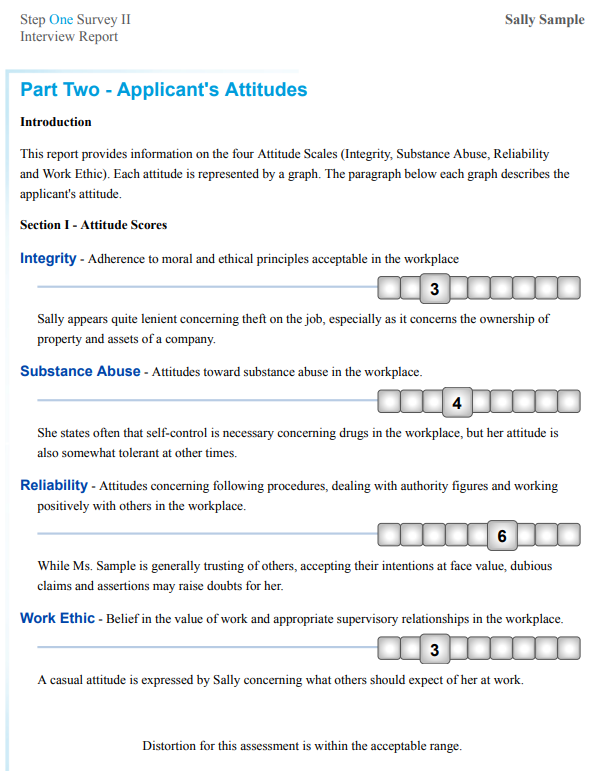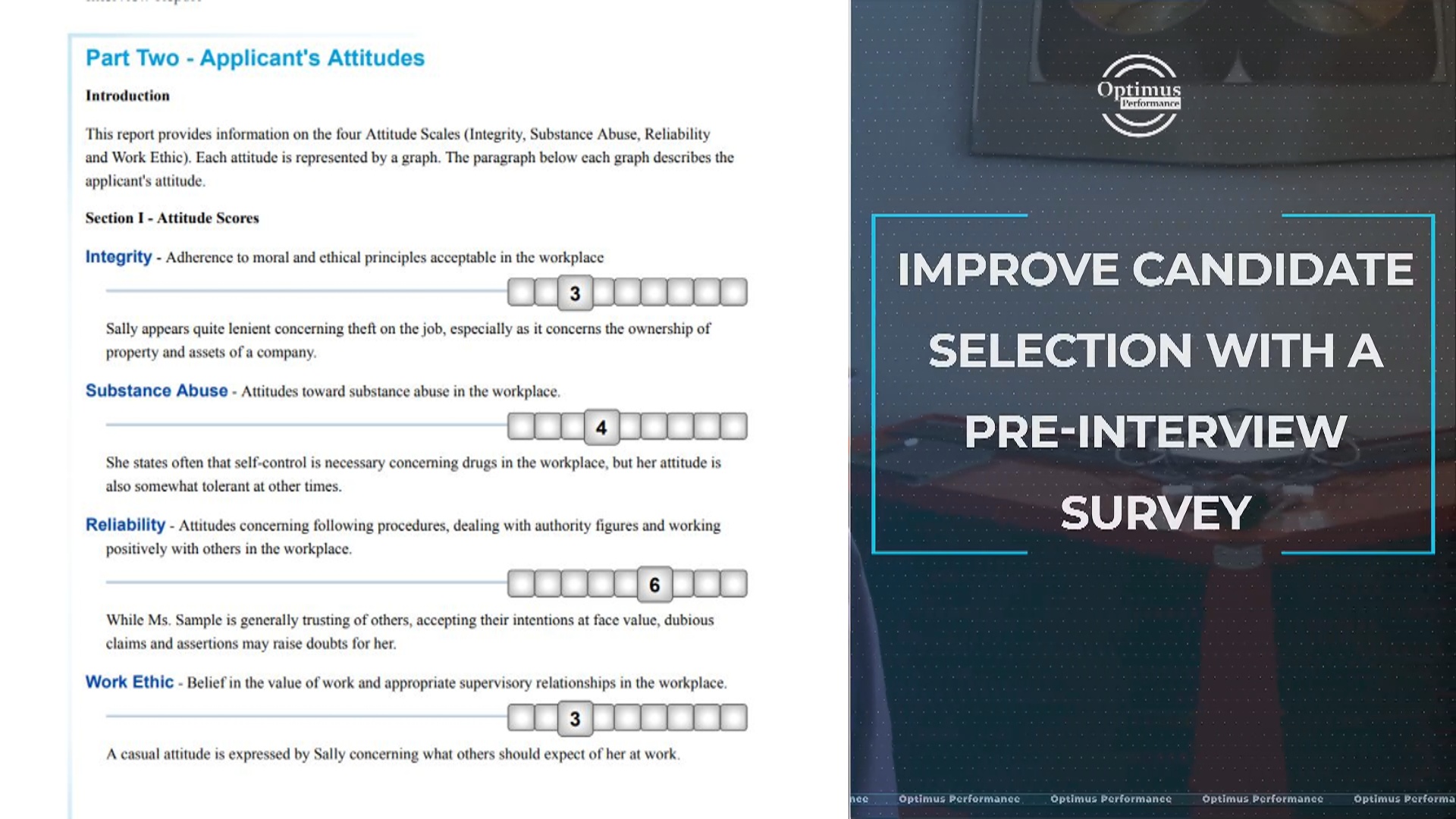A pre-interview questionnaire or survey can assist dramatically in improving the interview process and this leads to better hires.
I have been using the Step One II survey for many years and have found it a great tool to drive better first interviews and to get a good assessment of the attitude of the person towards work. The survey questionnaire takes between 20 to 30 minutes to complete and is available in multiple languages.
The interview report is in two parts. Part One has five sections plus a quick overview about the candidate.
- Section I – Inconsistent Responses – Any noted inconsistency between two or more responses.
- Section II – Employment Profile – Essential information regarding his/her employment and termination history with possible follow-up interview questions.
- Section III – Theft – A summary of self-admissions regarding theft of money, property, data and/ or time.
- Section IV – Illegal Substance Abuse – Personal admissions regarding the personal use and/or distribution of illegal and/or regulated substances.
- Section V – Criminal Convictions – Personal admissions regarding criminal convictions if any
Section IV and V are only available in countries where laws permit asking these questions such as in the USA. They are not permitted in Canada where I live.
Part two has two sections and covers the attitude of the person towards work and the workplace.
- Section I – Attitude Scores – Applicant’s attitudes regarding Integrity, Substance Abuse, Reliability, and Work Ethic along with descriptions of the factors being measured.
- Section II – Summary Graph – A visual summary of the applicant’s results
What I find especially useful is that the report brings up things that might concern me about the candidate and it generates good interview questions to explore more in-depth. It does so in a consistent manner.
By having such a tool as part of the hiring process for a position, you keep the same standards and process for all candidates. This helps you to be more consistent in your interviewing process while making it more productive and effective.
Here is an example of a candidate statement from Section II covering the employment profile along with a suggested interview question.
Ms. Sample states that she has had a problem working for a supervisor more than one time.
Interview Question: Your past problems with supervisors could be easier for me to understand if you describe the common issues of the problems, if any. What tends to cause these problems, from your perspective?
This area of concern would not appear on a resume and may not come out in an interview, but it is an especially important matter of concern.
One reason I decided to write this article and make the video is a situation that just occurred with a candidate for a client. The candidate stated in the section on employment profile that he had previously worked for the company (my client). Again, this is particularly important to know and may not have come out in the interview but did in the survey. Now my client can explore this issue and discuss the candidate with the supervisor at the time. Part two of the report provides scores on the attitude of the person in four areas and on a scale of one to nine. It also looks for possible distortion that would make the results unreliable. Certain questions that affect how frank the person is responding to the questions are integrated in this section. If the person is being less when frank answering the survey, then there is reason to believe the resume and interview answers may also be less forthright.

Critical issues in this section will be highlighted and suggested interview questions are provided. Here is an example:
Critical Issue: Is the applicant justified for feeling this way?
Applicant’s Response to: So little of what I do is really appreciated by others. (Ms. Sample agrees)
Interview Questions:
- Why do you feel that you are not appreciated by others? Can you give a specific example? Is this one time or is this repetitive?
- What do you mean by “appreciated?”
My experience with this tool has provided me excellent information to focus a highly productive first interview and improved candidate selection. To request a full sample report please send me an email request.
